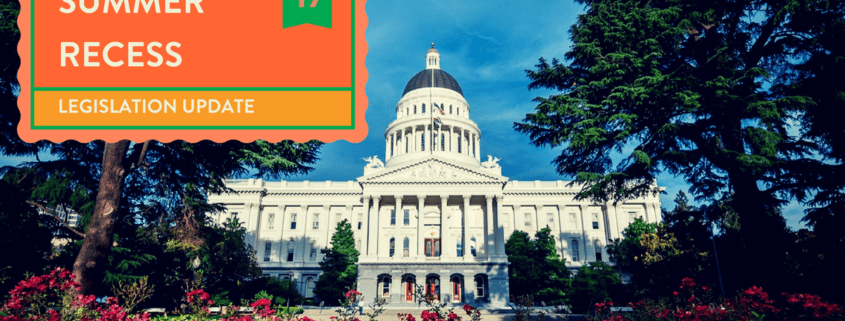As the State Legislature Heads Out on Summer Recess, What’s Next for Key CalBike-Supported Bills?
The legislature may be on summer break, but CalBike is hard at work preparing for the next round of opportunities to advocate for a better California for all. Read on for an update on key legislation we’re sponsoring or tracking, and keep up with our blog for opportunities to get involved.
Get State Employees Rolling: SB 702 (Stern)
This CalBike-sponsored bill expands California’s state employee bike share program, currently limited to just under 100 bikes; SB 702 passed the Senate Committee on Accountability and Administrative Review and is headed to the Appropriations Committee. While the bill was amended to say the state is required to expand bikeshare wherever it’s both feasible and “reasonable” rather than just feasible, we’re excited about the potential expansion of this program.
CalBike is sponsoring this bill because we know that expanding access to bicycles for California’s hundreds of thousands of state employees means getting more cars off the road, promoting bicycling, and helping our neighbors to make healthier choices. Increasing bicycling and reducing fossil fuel use and traffic congestion are critical priorities for our state and bike shares can help to meet those needs. This is an opportunity to help our state’s employees to be part of the transportation system of the future, and CalBike is ready to keep up the fight for a sustainable state vehicle fleet.
Require Qualified Representation: AB 179 (Cervantes)
AB 179 is part of a series of efforts to reform the powerful California Transportation Commission, an executive body with far-reaching impact. Transportation investments affect all Californians, and they often disproportionately burden our lowest-income communities-but the CTC currently has no requirements that it’s appointed commissioners have any experience with important issues like pollution impacts, sustainable and active transportation, or public health. Legislation like AB 179 aims to change that.
This particular bill has evolved from a mandate that the CTC must include representation from experts that live and work in underserved and environmental justice communities to a guideline suggesting that the governor should “use every effort” to ensure diverse and experienced appointments, but CalBike still sees AB 179, now headed to the Senate Appropriations Committee, as a step in the right direction. The fact that Chairman of the Senate Transportation and Housing Committee Senator Beall (D-Campbell) forcefully acknowledged that “We need to have a more diverse state transportation commission” is representative of an encouraging shift away from the status quo in transportation decision-making. CalBike agrees and we plan to hold him to ensuring the state follows through on that statement when the next opportunity to appoint diverse representation to the commission comes up.
Free Transit for Students: AB 17 (Holden)
AB 17 creates a free transit pass program for low-income students in middle school through university, enabling students all over the state to get to and stay in school. Investing in student transit programs is an investment in our future. Besides elevating the lifelong potential of our students, these programs can help to improve our transit systems, create lifelong transit users, reduce carbon emissions and traffic congestion, and reduce strain on low-income families.
The bill passed the Senate Transportation & Housing Committee and is headed into the Committee on Appropriations, where it faces a tough fight for funding. The concept of a free transit program is extremely popular but finding a consistent funding source for it is the real challenge.
Hold Cities Accountable: SB 150 (Allen)
The state’s regional planning authorities are required to set climate goals for reducing carbon emissions largely through more efficient transportation and land use development that reduces miles traveled in personal vehicles—but as of right now there is no mechanism for holding our regional agencies accountable to these requirements. SB 150 challenges metropolitan regions to set regional targets that align with the state’s climate change targets, by reducing driving and making it easier to walk, bike, and take transit.
SB 150 passed out of the Transportation and Natural Resources Committees of the Assembly and is headed to Appropriations-but not without being amended to remove references to specific targets for reducing driving. There is still much work to be done in holding regional authorities and their member local jurisdictions accountable to the goals we set as a state.




